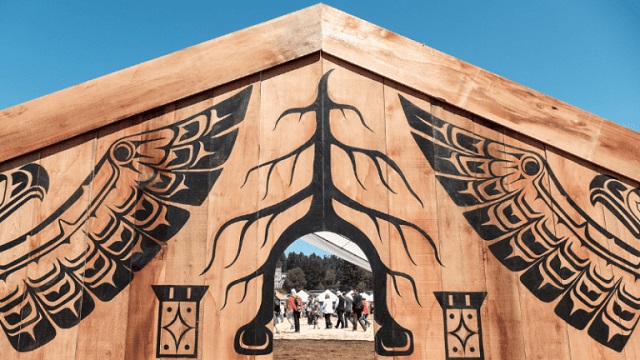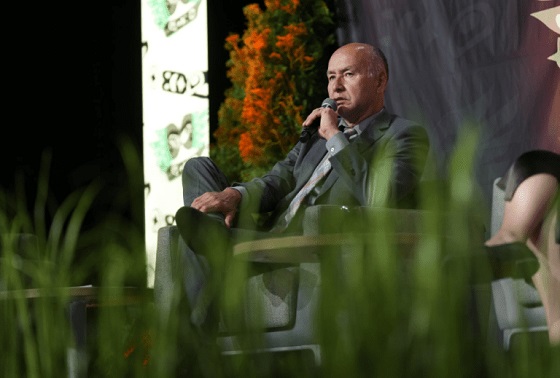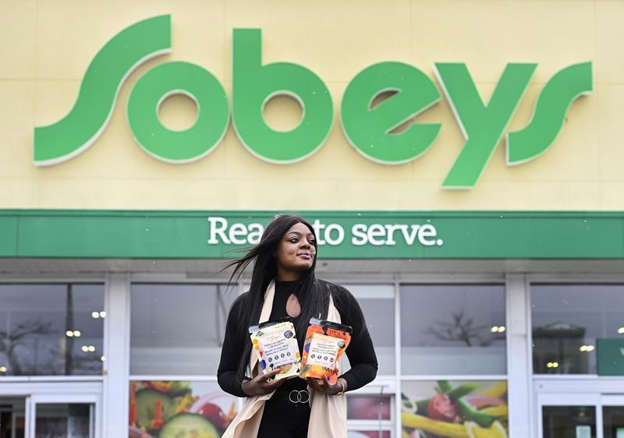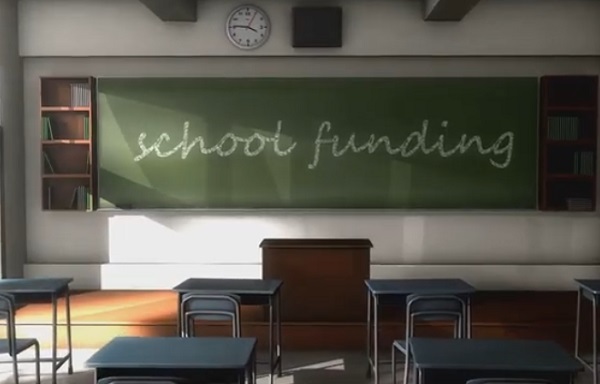Indigenous
B.C.’s plan to ‘reconcile’ by giving First Nations a veto on land use

From the MacDonald Laurier Institute
By Bruce Pardy
UNDRIP-inspired land law reforms are poised to turn province into an untenable host for mining, forestry and much more.
We live in strange times. A new generation of political leaders seems determined to cripple their own societies. Prime Minister Justin Trudeau, of course, comes to mind. But in Canada, he is not alone. In British Columbia, NDP Premier David Eby is preparing to bring his province to its knees.
The B.C. government plans to share management of Crown land with First Nations. The scheme will apply not to limited sections of public land here and there, but across the province. The government quietly opened public consultations on the proposal last week. According to the scant materials, the government will amend the B.C. Land Act to incorporate agreements with Indigenous governing bodies.
These agreements will empower B.C.’s hundreds of First Nations to make joint decisions with the minister responsible for the Land Act, the main law under which the provincial government grants leases, licences, permits and rights-of-way over Crown land. That means that First Nations will have a veto over how most of B.C. is used. Joint management can be expected to apply to mining, hydro projects, farming, forestry, docks and communication towers, just to start. Activities at the heart of B.C.’s economy will be at risk.
In 2007, the United Nations General Assembly adopted the Declaration on the Rights of Indigenous Peoples (UNDRIP). UNDRIP states, among other things, that Indigenous people own the land and resources of the countries in which they live. They have “the right to the lands, territories and resources which they have traditionally owned, occupied or otherwise used or acquired … to own, use, develop and control.”
At the time, Canada sensibly voted “no,” along with the United States, Australia and New Zealand. Eleven countries abstained. In 2016, Trudeau’s government reversed Canada’s objection.
As a General Assembly declaration, UNDRIP is not binding in international law nor enforceable in domestic courts. But in 2019, under the leadership of Eby’s predecessor John Horgan, the B.C. legislature passed Bill 41, the Declaration on the Rights of Indigenous Peoples Act. The act requires the government of B.C. to “take all measures necessary to ensure the laws of British Columbia are consistent with the Declaration.” Eby’s joint management plan is the next step in this project.
Long before UNDRIP, the Supreme Court of Canada created a constitutional “duty to consult” with Aboriginal peoples. The court said that the “honour of the Crown” governs the relationship between the government and Aboriginal people. The Crown’s fiduciary duties include a duty to consult whenever proposed action may adversely affect established or asserted Aboriginal rights under Section 35 of the Constitution. This duty is notoriously uncertain, onerous and time-consuming. It has become an albatross around the neck of the Canadian resource industry. The courts seem unable to specify what the duty to consult requires, except after the fact.
Now, the B.C. government aims to make things even more unpredictable. Whatever the contours of the right to be consulted, the Supreme Court at least has been clear that it does not constitute a veto. Eby will create one.
Shortly before the B.C. legislature passed Bill 41 in November 2019, the Continuing Legal Education Society of British Columbia sponsored an Aboriginal Law Conference featuring several Indigenous proponents of the bill. They promised that the new law would render the province unrecognizable.
It will “set up a whole new norm,“ “give teeth to (UNDRIP),” and move the province away, if “not fully,” from the Westminster model of governance. The veto to be conferred on Indigenous interest groups, they said, will mean that “consent will not be given very often, if at all.”
“We’re not talking small changes; we’re talking big changes,” one speaker suggested, adding that money provided by the government so far hasn’t been enough.
“Compensation for sacred sites, for lands taken, for relocation … it’s going to be an overwhelming number of compensation claims … and so I’m hoping that the province is ready for that…. Life (in B.C.) can and will change.”
For many, it is likely to change for the worse. B.C. could become an untenable host for land-based, resource-related enterprise. Impenetrable layers of red tape would entangle applications for leases and licenses. The price for First Nations approvals could be an increasing share of royalties and kickbacks, without which consent will be refused. Both governments and First Nations will siphon an ever-larger piece of a shrinking pie.
The government’s timeline is short. Written submissions will be accepted until the end of March, and anyone giving feedback will be limited by how little information the B.C. government has offered in the consultation. Bureaucrats will begin drafting amendments to the Land Act in early February, and the government plans to introduce a bill in April or May.
If you are feeling grateful not to live in B.C., don’t count your chickens. In 2021, Parliament passed its own version of B.C.’s Bill 41, the federal United Nations Declaration on the Rights of Indigenous Peoples Act. It requires the federal government to “take all measures necessary to ensure that the laws of Canada are consistent with the Declaration.” An action plan outlining more than 100 specific measures was released in 2023.
In a speech to the B.C. Business Council in 2016, I argued that our leaders could not do a better job of preventing Canadian business from succeeding in the global economy. I underestimated them. Their determination and ingenuity know no bounds.
Bruce Pardy is executive director of Rights Probe, professor of law at Queen’s University, and senior fellow with the Macdonald-Laurier Institute.
Energy
In the halls of Parliament, Ellis Ross may be the most high-profile advocate of Indigenous-led development in Canada.

From Resource Works
“We’re not talking about reconciliation anymore…we’re talking about prosperity, and making sure it lasts.”
Ellis Ross stepped onto the stage at the Vancouver Convention Centre last year. He didn’t reach for notes, and spoke plainly to the audience of business leaders, chiefs, and policymakers gathered for the Indigenous Partnerships Success Showcase (IPSS).
“I’m very proud to say that my band, the Haisla Band, is no longer talking about unemployment, poverty, reconciliation,” Ross said. “We’re talking about the management of wealth.”
Ross’s message was equal parts challenge and triumph, and was followed by a standing ovation for a man who has lived the slow climb from the margins to the mainstream. Once a water-taxi operator in Kitamaat Village, he is now one of the country’s most influential Indigenous political figures.
As he returns as a featured guest to this year’s IPSS, Ross embodies the event’s core theme: Shared Prosperity Now.
Born and raised in the Haisla Nation near Kitimat, Ross spent his early life in a community scarred by unemployment and a lack of opportunity.
“We had nothing,” Ross told the Arc Energy Ideas podcast last year. “We were begging for money, begging for infrastructure. We were one of the poorest bands in British Columbia.” Under his leadership, that changed forever.

As Haisla chief councillor from 2011 to 2017, Ross helped transform his community through industry partnerships rooted in resource development. He rejecting the old idea that development was a natural enemy of culture, and steered the Haisla into the energy economy on their own terms by embracing liquefied natural gas (LNG).
The Cedar LNG project, co-owned by the Haisla Nation and Pembina Pipeline, will become the largest Indigenous-majority-owned energy project in Canada’s history.
“It will have one of the lowest carbon footprints in the world,” said Crystal Smith, Ross’ successor as Haisla Chief Councillor. Cedar LNG is scheduled to begin operation in 2028.
For Ross, participation means power.
“If you uplift an Aboriginal community, the biggest beneficiaries, apart from First Nations, are the rest of British Columbia,” he said at IPSS in 2023. “We’ve got no malls or car dealerships on reserves. We spend it in our neighbouring communities.”
Ross’s journey hasn’t been without conflict. Writing in the Times Colonist in 2020, he warned of foreign-funded activists “hijacking our future” by dividing Indigenous communities and undermining resource partnerships.
“The last thing any of us need is intervention from foreign groups that want to hijack our future for their own objectives,” he wrote, condemning the influence of U.S. foundations funnelling money to anti-development campaigns.
He is vehemently opposed to “distraction politics”, and it became a hallmark of Ross’s political career. As MLA for Skeena from 2017 to 2024, Ross built a reputation for straight talk. He was eager to defend both workers and environmental standards for the modern resource industry.

With a pragmatic style, he gained admiration from both business leaders and former premier Christy Clark, who has praised Ross because he “fought for an LNG industry that will be the cleanest, the greenest, and the safest anywhere in the world.”
By early 2024, Ross announced his move to federal politics, saying he wanted to take “the principles I’ve developed over the last 15 years” to Ottawa.
Now the Member of Parliament for Skeena-Bulkley Valley, he’s now one of the most prominent Indigenous voices in the House of Commons, and one of the few with deep experience in both community governance and heavy industry.
Recently, Ross said he plans to hold the federal government to its promise of making Canada an “energy superpower.”
“For the area and for Canada, I want to hold this government accountable for those words,” he told the Prince George Citizen. “Projects like LNG Canada and Cedar LNG can show the world how Indigenous leadership and environmental responsibility go hand in hand.”
Ross’s attendance at IPSS 2025 comes at a moment when Indigenous participation in major projects is reshaping the national economy.
More than two dozen First Nations now hold equity in energy, mining, or infrastructure developments. It is proof that reconciliation, in his view, must be measured not in lofty statements but in actual ownership.
“You’ve got to leave a lot of those old narratives at the door,” he told delegates. “We’re not victims. We’re builders.”
Now, from the carpet of Parliament Hill to the polished floors of the Vancouver Convention Centre, Ellis Ross continues to speak for both the Haisla and the wider coalition of Indigenous and non-Indigenous Canadians who believe in growth through partnership.
As IPSS Event Lead Margareta Dovgal put it, “He bridges worlds—the boardroom, the band office, and the floor of the legislature.”
When Ross steps back onto the IPSS stage this November, expect the same mix of candour and conviction that has defined his career. “
We’re not talking about reconciliation anymore…we’re talking about prosperity, and making sure it lasts.”
Fraser Institute
Aboriginal rights now more constitutionally powerful than any Charter right

From the Fraser Institute
By Bruce Pardy
A judge of the British Columbia Supreme Court recently found that the Cowichan First Nation holds Aboriginal title over 800 acres of government land in Richmond, British Columbia. Wherever Aboriginal title is found to exist, said the court, it’s a “prior and senior right” to fee simple title, whether public or private. That means it trumps the property that Canadians hold in their houses, farms and factories.
In Canada, property rights do not have constitutional status. No right to property is included in the Charter of Rights and Freedoms. Fee simple title is merely a gloss on the state’s constitutional authority to tax, regulate and expropriate private property as it sees fit. But Aboriginal rights are different. They have become more constitutionally powerful than any Charter right.
In 1968, then-Justice Minister Pierre Trudeau released a consultation paper that proposed a constitutional charter of human rights. It was the first iteration of what would become the Charter. In the paper, Trudeau proposed to guarantee a right to property. So did drafts that followed. But some provincial governments were dead set against entrenching property rights. By 1980, property had been dropped from proposals. The final version of the Charter, adopted in 1982, does not mention it. Canada’s Constitution does not protect property rights.
Except for Aboriginal property. Trudeau’s 1968 paper made no mention of Aboriginal rights, nor did drafts leading up to the 1980 proposal. Aboriginal groups and their supporters launched a campaign to have Aboriginal rights recognized. They succeeded just in time. Section 35, essentially an afterthought, recognized and affirmed the “existing aboriginal and treaty rights of the aboriginal peoples of Canada.” That section was put into the Constitution but not as part of the Charter. That might sound like section 35 is weaker than a Charter right, but it’s the opposite.
Section 35 affirms Aboriginal rights that existed as of 1982. But since 1982, the Supreme Court of Canada has used section 35 to champion, enlarge and reimagine Aboriginal rights. The Court has “discovered” rights never recognized in the law before 1982. In 1997, it articulated a new vision of Aboriginal title. In 2004, it established the Crown’s “duty to consult.” In 2014, it recognized Aboriginal title over a tract of Crown land. In 2021, it gave Aboriginal rights under section 35 to an American Indigenous group.
Now the B.C. court in the Cowichan decision has said that Aboriginal title takes precedence over private property. Last November, a judge of the New Brunswick King’s Bench suggested similarly. Where a claim of Aboriginal title succeeds over land held in fee simple, she said, the court may instruct the government to expropriate the private property and hand it over to the Aboriginal group.
Governments and legislatures have shown little inclination to turn back these developments. But even if they wanted to, the Constitution stands in the way.
Section 33 of the Charter, the “Notwithstanding clause” (NWC), allows provincial legislatures and the federal Parliament to enact legislation notwithstanding the Charter rights guaranteed in sections 2 and 7 to 15. That means that they can pass statutes that might infringe these Charter rights. Use of the NWC clause prevents courts from striking down the statute as unconstitutional. The main part of the NWC reads:
33. (1) Parliament or the legislature of a province may expressly declare in an Act of Parliament or of the legislature, as the case may be, that the Act or a provision thereof shall operate notwithstanding a provision included in section 2 or sections 7 to 15 of this Charter.
Section 35 is not part of the Charter. It is not subject to the NWC. Legislatures cannot ignore it, legislate around it, or change its meaning. Barring a constitutional amendment, courts have exclusive domain over the scope and application of section 35. In the constitutional hierarchy, Aboriginal rights rest above the “fundamental freedoms” and rights of the Charter.
Lest there was any doubt about that status, section 25 of the Charter spells it out. Charter rights and freedoms, the section says, “shall not be construed so as to abrogate or derogate from any aboriginal, treaty or other rights or freedoms that pertain to the aboriginal peoples of Canada.”
That does not mean that Aboriginal rights are absolute. Legislation or government action may sometimes infringe Aboriginal rights. But courts, not legislatures, control when, where, and under what circumstances that can happen. The Supreme Court of Canada has established the process and criteria by which governments must justify infringements of section 35 to the courts’ satisfaction.
Section 35, like much of the rest of the Constitution, is subject to an onerous amending formula. It cannot be easily changed or repealed.
-

 COVID-192 days ago
COVID-192 days agoDevastating COVID-19 Vaccine Side Effect Confirmed by New Data: Study
-

 Red Deer2 days ago
Red Deer2 days agoThe City of Red Deer’s Financial Troubles: Here Are The Candidates I Am Voting For And Why.
-

 Business2 days ago
Business2 days agoCanada Post is failing Canadians—time to privatize it
-

 Business2 days ago
Business2 days agoYour $350 Grocery Question: Gouging or Economics?
-

 2025 Federal Election11 hours ago
2025 Federal Election11 hours agoProtestor Behind ‘Longest Ballot’ Chaos targeting Poilievre pontificates to Commons Committee
-

 Media2 days ago
Media2 days agoResponse to any budget sleight of hand will determine which audience media have decided to serve
-

 Education2 days ago
Education2 days agoClassroom Size Isn’t The Real Issue
-

 illegal immigration2 days ago
illegal immigration2 days ago$4.5B awarded in new contracts to build Smart Wall along southwest border







